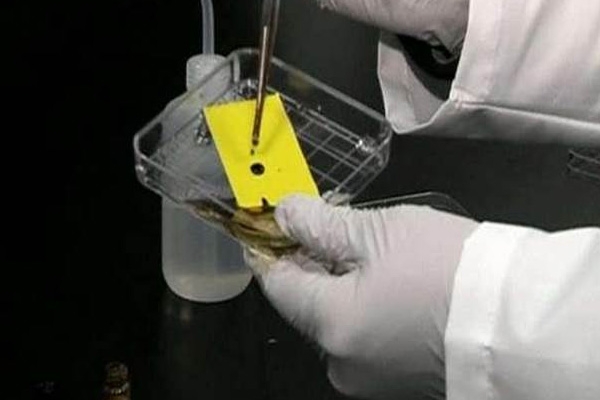Scientists, Including Indian-origin Develop Coating that Repels Water, Oil, Alcohol
June 25, 2018 14:42
(Image source from: The Financial Express)
An Indian-origin along with else scientists formulated an omniphobic coating that can be applied on numerous surface in order to make them repel water, oil, and alcohol.
An associate professor at the University of Michigan Anish Tuteja developed the chemical coating that is unsubtle, and long-lasting.
The friction drag, resistance can be reduced by omniphobic coatings created by the motion of a hull through water, that is on watercraft, submarines, and unnamed underwater vessels.
"A significant percentage of a ship’s fuel consumption (up to 80 percent at lower speeds and 40-50 percent at higher speeds) goes toward maintaining its speed and overcoming friction drag," said Ki-Han Kim, a programme officer at U.S. Office of Naval Research (ONR), which sponsored the work.
"If we could find a way to drastically reduce friction drag, vessels would consume less fuel or battery power, and enjoy a greater range of operations," said Kim.
While repellent coatings are not new, it is hard enough to stick to assorted surfaces for long period of time and difficult to create one that withstands most liquids.
"Researchers may take a very durable polymer matrix and a very repellent filler and mix them," said Tuteja.
"But this doesn't necessarily yield a durable, repellent coating. Different polymers and fillers have different miscibilities (the ability of two substances to mix together). Simply combining the most durable individual constituents doesn't yield the most durable composite coating," he added.
A vast computer database was studied by the researchers of known chemical substances, to engineer their innovative coating. Then, they get into complex mathematical equations, based on molecular properties of each substance's, to predict how any two would behave when amalgamated. The researchers found the right mix after analyzing hundreds of combinations.
During laboratory tests, the molecular marriage was a hit. On numerous surfaces, the rubber-like combo can be sprayed, brushed, dipped or spin-coated, and it binds tightly. The coating likewise can defy scratching, denting and some other hazards of everyday use. The way the molecules apart makes the coating optically unsubtle.
Besides reducing friction drag, the omniphobic coating could defend high-value equipment like sensors, radars, and antennas from the weather.
By Sowmya Sangam





















